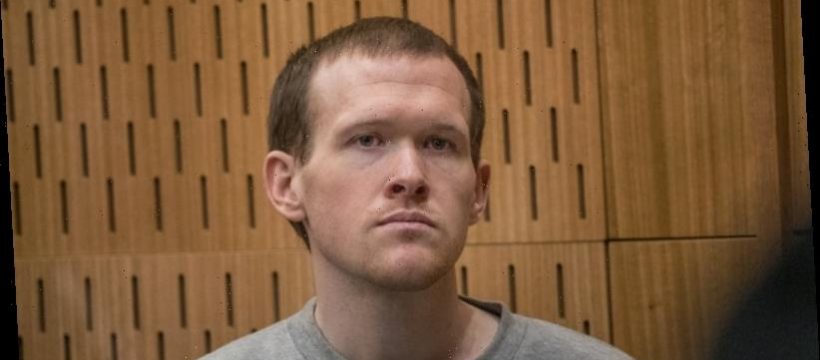Australian terrorist Brenton Tarrant could only have been stopped "by chance" before his March 2019 attack on two Christchurch mosques – despite troubling signs indicating that he was a dangerous extremist.
New Zealand's royal commission report into the killing of 51 Muslim worshippers finds that while it is now clear there were events that could be linked to the terrorist’s planning and preparation, the signs were “fragmentary” and could not be put together at the time.
“No single aspect of it could have alerted public sector agencies to an impending terrorist attack,” the report said.
NZ Prime Minister Jacinda Ardern speaks to reporters during a media lock-up ahead of the release of the Royal Commission of Inquiry into the Christchurch mosque attacks.Credit:Getty Images
Prime Minister Jacinda Ardern has promised “accountability” from the government based on the findings.
On Tuesday she apologised for the failings of security agencies.
"The commission found no failures within any government agencies that would have allowed the terrorist's planning and preparation to be detected.
"But they did identify many lessons to be learnt in significant areas that require change," she said.
"For many years the Muslim community has raised concerns over the disproportionate scrutiny by security and intelligence agencies. As one member of the community put it to me recently, they could only assume the same level of scrutiny was being applied to those who posed a threat to their security.
"The report confirms there was 'inappropriate concentration of resources'. The report specifically notes that before 2018 the concentration of resources was not based on an informed assessment of the threats of terrorism associated with other ideologies.
"While the commission made no findings that those failings who have stopped the attack, these were failings nonetheless and for that, on behalf of the government, I apologise."
She said the report would form the basis of a comprehensive program of reforms that would make New Zealand a safer more inclusive country.
Australian Brenton Tarrant was sentenced to life imprisonment without parole for the Christchurch mosque attacks.Credit:Getty Images
Apart from the gunman’s contact with firearms licensing authorities and border officials during his travel in and out of New Zealand, he also had brushes with several other public agencies in the lead-up to the attack. But none of these were considered serious enough to warrant a report to security authorities.
Red flags included Tarrant's abuse of steroids and testosterone, which was diagnosed by a doctor in 2017, the time he presented to a hospital emergency department in July 2018 with gun shot injuries to his right eye and thigh in a firearms accident at his home in Dunedin, and claims his extremist views on social media were reported to authorities.
The 792-page report makes sweeping recommendations for national security agencies to help ensure the horrific terror attack is never repeated.
The Royal Commission of Inquiry into the Terrorist Attack on Christchurch Mosques has examined, for example, how security agencies reacted to the attack, and how information was shared and analysed by these agencies.
Brenton Tarrant, the Australian perpetrator of the massacre, was sentenced to life without parole back in August – the first time such a sentence has ever been handed down in New Zealand.
In addition to 51 counts of murder, Tarrant also pleaded guilty to 40 counts of attempted murder and one act of terrorism for his attack on the Al Noor and Linwood mosques in Christchurch.
Tarrant live-streamed the attack on Facebook, which shocked the world, but chose not to speak at his sentencing. Ardern has promised never to utter his name.
After initial calls from some quarters, including former deputy prime Winston Peters, for Tarrant to serve his sentence in Australia – a proposal Prime Minister Scott Morrison said he was open to – it now appears certain the killer will serve his life sentence in a New Zealand jail.
More to come
with Stuff.co.nz
Most Viewed in World
Source: Read Full Article


